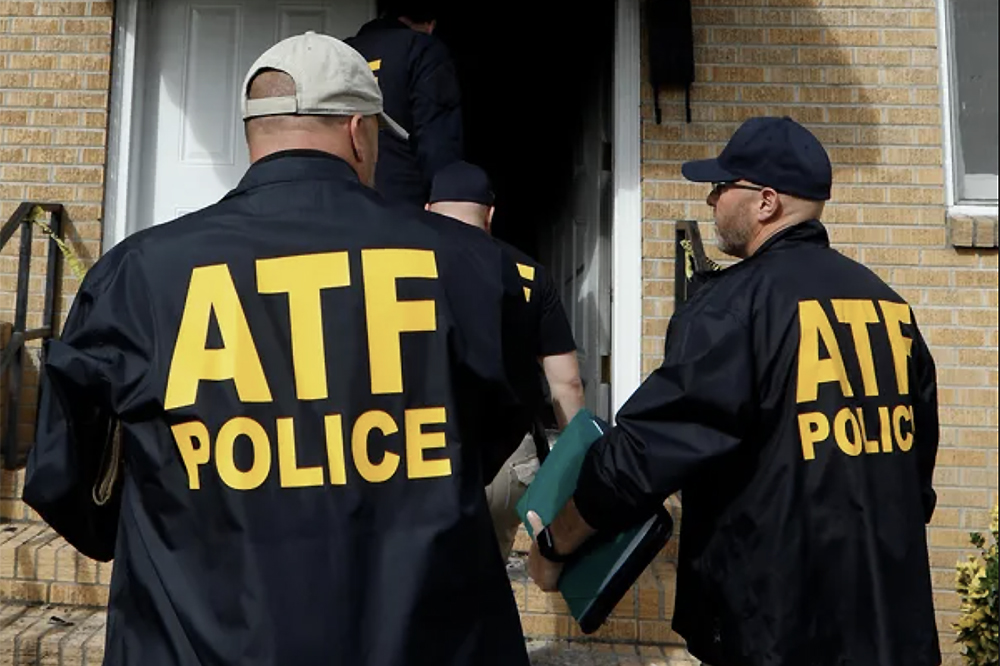
Much of the coverage of the U.S. Supreme Court’s recent decision to overturn the Chevron Deference doctrine suffers from one of two problems: Either it’s written by lawyers for lawyers and is therefore unintelligible for anyone without a juris doctor, or it’s written by the corporate media and is chock-full of errors, omissions and untruths.
Bill Sack, director of legal operations for the Second Amendment Foundation, agreed to help clarify this landmark Supreme Court decision, which it turns out is good for gun owners and bad for the ATF.
Q: What is the Chevron Deference doctrine?
A: “By a vote of 6-3, the justices overruled their landmark 1984 decision in Chevron U.S.A., Inc. v. Natural Resources Defense Council, Inc., which gave rise to the doctrine known as Chevron Deference. Under that doctrine, if Congress has not directly addressed the question at the center of a dispute, a court was required to uphold the agency’s interpretation of the statute as long as it was reasonable.
What the Chevron Deference doctrine did was when administrative agencies write regulations, they often will have their own administrative courts that interpret the regulations the agency has drawn up. For example, if the EPA makes a regulation that says a factory can only put out so much pollution, and there is a question as to whether a specific factory violated the regulation, the first place the factory has to go is the EPA’s administrative court, where an EPA administrative judge will interpret the EPA’s regulations. If the factory is unsatisfied with the EPA judge’s decision, they can appeal to federal court. What Chevron Deference did was this: If the administrative court’s decision was appealed, the federal court was then supposed to be heavily deferential to the findings of that administrative court.
Basically, the doctrine put a thumb on the scale in favor of the administrative agency.
The federal court was supposed to give a lot of deference to what the administrative agency found. From a liberty perspective, this is a separation of powers problem. The administrative agency, as an executive agency, is supposed to enforce the law. It’s not supposed to write the law. It’s not supposed to interpret the law. These alphabet agencies were writing regulations, which is a legislative function. They were enforcing the regulations, an executive function, and then they were interpreting the regulations, which is a judicial function.
The ATF and the alphabet agencies were doing the jobs of all three branches of government and if challenged, the federal courts were supposed to defer to what their administrative courts found. Even if the federal court thought the agency’s administrative court got it wrong, they didn’t always overrule the decision. They believed that these agencies were the experts, who were best at administering and interpreting the own regulations. For example, the courts acted like since the EPA found that the EPA did nothing wrong, we’ll defer to them since they’re the experts.”

Q: What specifically did the U.S. Supreme Court decide?
A: “Chevron was overturned formally based on the Administrative Procedures Act, which sets out the procedures that federal agencies must follow as well as instructions for the courts to review actions by those agencies. The Supreme Court decided that this deference was unlawful. The Supreme Court said federal courts should start from scratch, rather than showing deference to the alphabet agencies. The High Court removed their thumb from the scale.”
Q: How will this decision affect the ATF?
A: “Hopefully, it tones down all of the administrative agencies because it returns power to the judiciary. It should tone down the ATF just like the rest. They can no longer adjudicate their own rules and say, ‘we’re right because we said we’re right.’
The writing has been on the wall for some time that Chevron would get knocked down. In a few of the (Administrative Procedure Act) challenges, the ATF has said they are not relying on Chevron to make their point. I suspect they didn’t want to hang their hat on Chevron. During the pistol brace and bump-stock cases, the ATF specifically said they were not relying on Chevron Deference.
If Chevron Deference were still alive, the ATF could write a rule like pistol braces. If someone was prosecuted for it and believed they shouldn’t have been found guilty in an ATF court, the ATF could rely on Chevron Deference during the appeal.
It was a big tool that every administrative agency had in their quiver.”
Q: How will the Supreme Court’s decision affect cases already in litigation, such as bump-stocks, pistol braces, frame and receiver and who needs an FFL?
A: “I don’t believe it will affect any of the current cases against ATF because the ATF has already disclaimed using Chevron.”
Q: Will this decision have any impact on the hundreds of gun dealers who have had their Federal Firearm Licenses revoked by the ATF for minor clerical reasons? (This question was posed to Adam Kraut, the Second Amendment Foundation’s executive director.)
A: “No. Revocation is entirely within the administrative process. The ATF only has to show a single willful violation. It’s not ambiguous where it would be difficult to ascertain what Congress meant. The courts have defined what willful is – they did something the law said they can’t do. Whether it was intentional, or they transposed some numbers, it’s still willful. There’s no deference in that regard. They don’t have to defer to the ATF to interpret anything,” Kraut said.
Q: Do gun owners still need to go through the ATF’s administrative process or can they now go straight to federal court?
A: “They still have administrative courts. They will still adjudicate violations of their own regulations, but if you want to appeal, the federal court has much greater leeway to overturn the administrative agencies with Chevron gone. The courts should be much better equipped to keep the administrative state in check,” Sack said.
Q: How will the Supreme Court’s decision affect gun owners?
A: “Big picture – for ATF and all of the other administrative agencies – it will hold their feet to the fire to interpret their own regulations fairly.”
The Second Amendment Foundation’s Investigative Journalism Project wouldn’t be possible without you. Click here to make a tax deductible donation to support pro-gun stories like this.
This story is part of the Second Amendment Foundation’s Investigative Journalism Project and is published here with their permission.


What about ATF determination letters? are those worth anything, if the courts do not defer to them anyway?
It means absolutely nothing if “We the People” continue to allow democrats to ignore the Constitution. Which they will continue to do by passing anti 2A legislation that requires a fight in the courts to have it overturned. They have historically played the long game on their disdain of the 2nd Amendment and this ruling will do nothing to stop it. Tyranny cannot be defeated in or by a Court. It requires the blood of tyrants and patriots to remove it from society and the continent. As was done by the founding patriots.
The Bruen and Chevron decisions mean nothing to the gun grabbers within the democrat party because they will continue to push forward anti 2nd A legislation and regulations that will require more lawsuits to overturn in courts headed by liberal progressive judges that disagree with the Supreme Court. Which will require more more cases as the suits move up the line. Further denying the Bruen and Chevron rulings until they once again reach the level of the Supreme Court. That may or may not take the case. What you don’t seem or refuse to understand is the Anti 2A zealots and politicians will never stop in their desire and efforts to delay, deny or destroy the 2nd A. regardless of any court ruling. They are playing the long game as they always have like a snake laying in the grass waiting for the right opportunity to take its prey and as long as that snake is allowed to lay in the grass its dangers will always exist. Whether that day be today, next month, next year or after men like us are long dead and gone. It is up to men like us to be sure the snake never has that opportunity, because we may be the last men who truly care enough about the freedom we want to pass on to our descendants. Freedom is always in a precarious place in the world and as President Reagan said, “Freedom is never more than one generation away from extinction. We didn’t pass it to our children in the bloodstream. It must be fought for, protected, and handed on for them to do the same, or one day we will spend our sunset years telling our children and our children’s children what it was once like in the United States where men were free.” My question is always the same. Are we that to be that last generation?